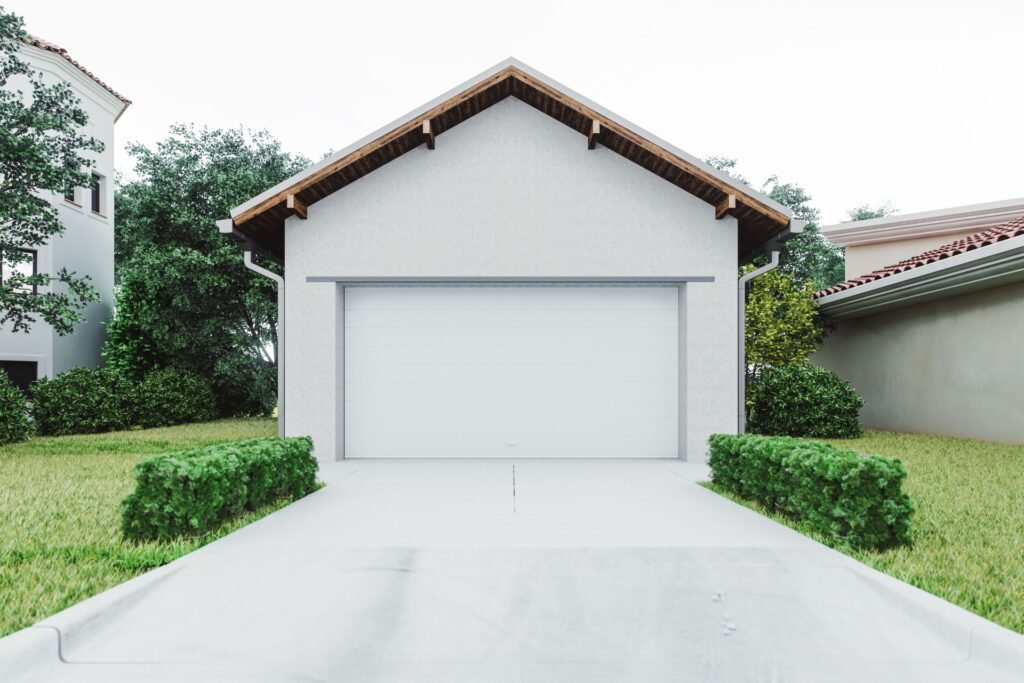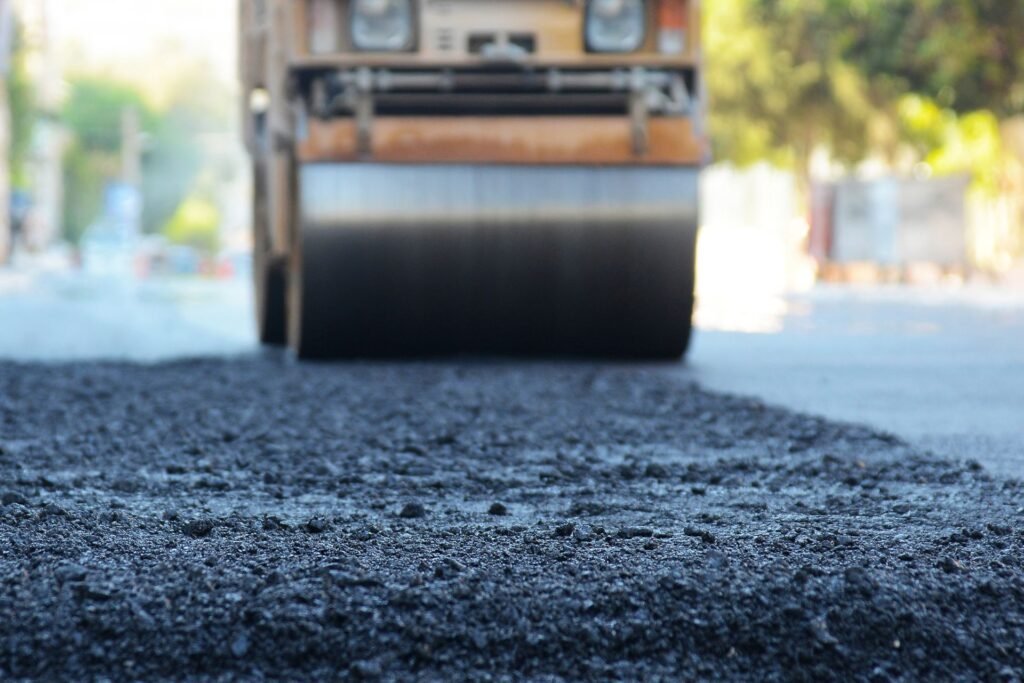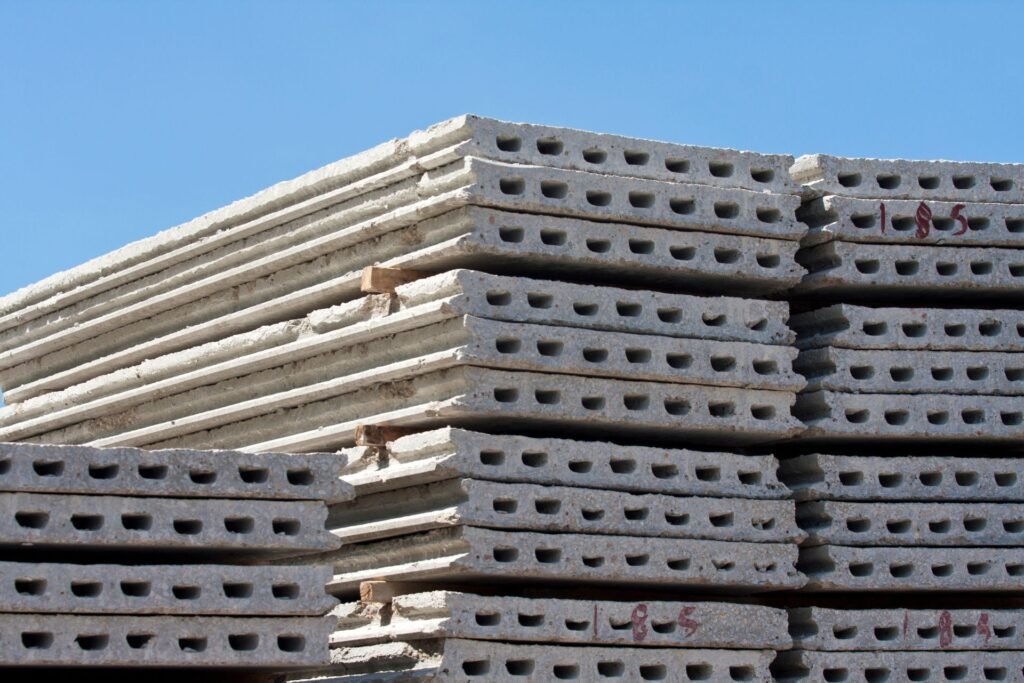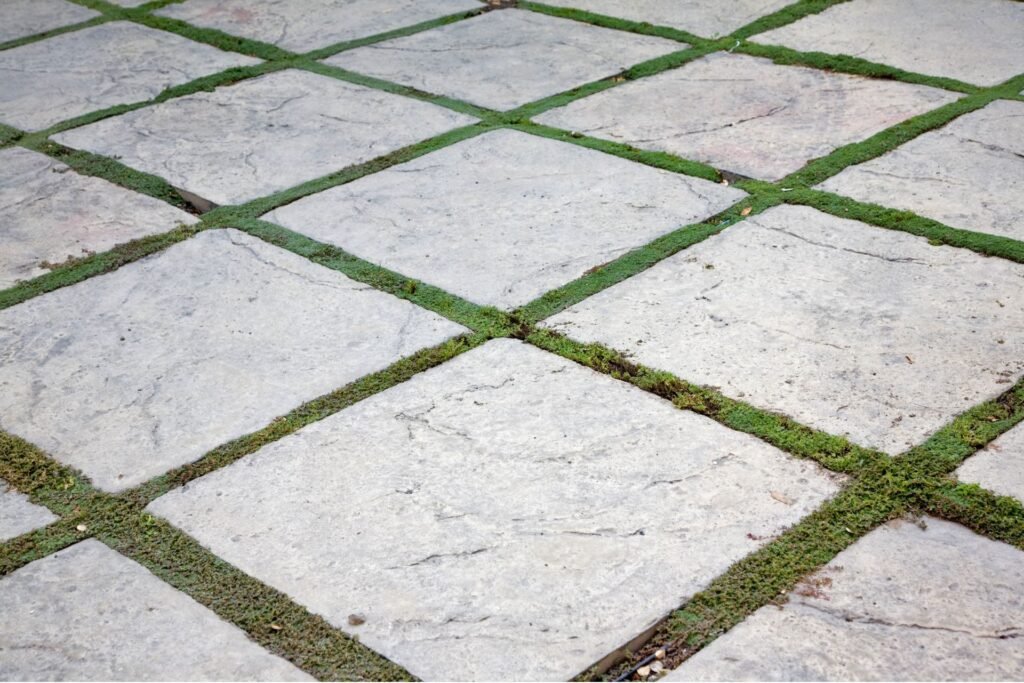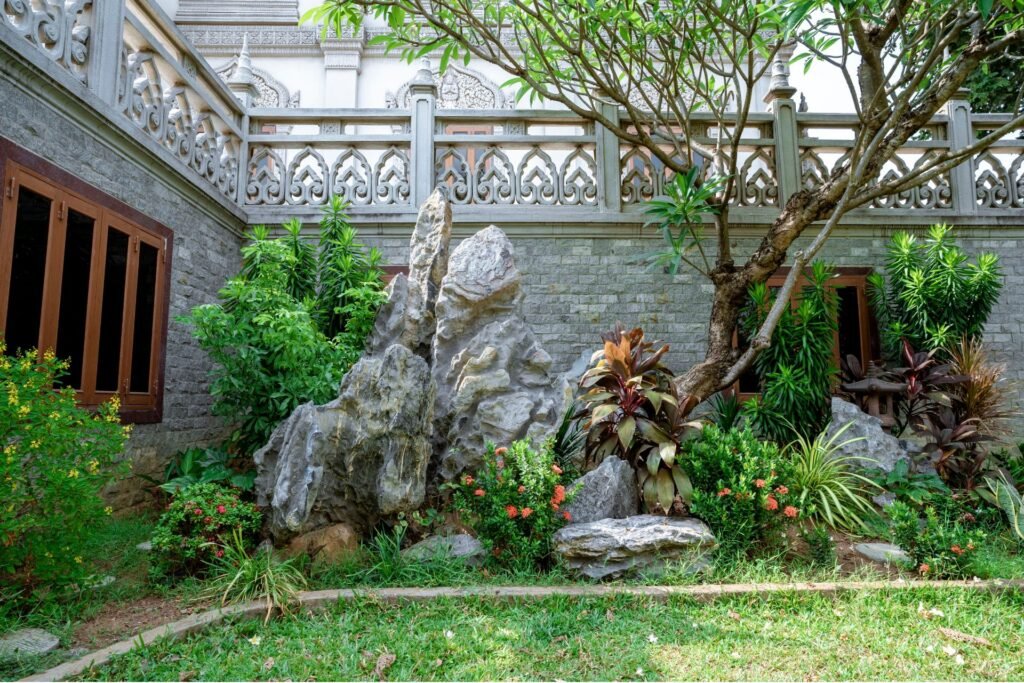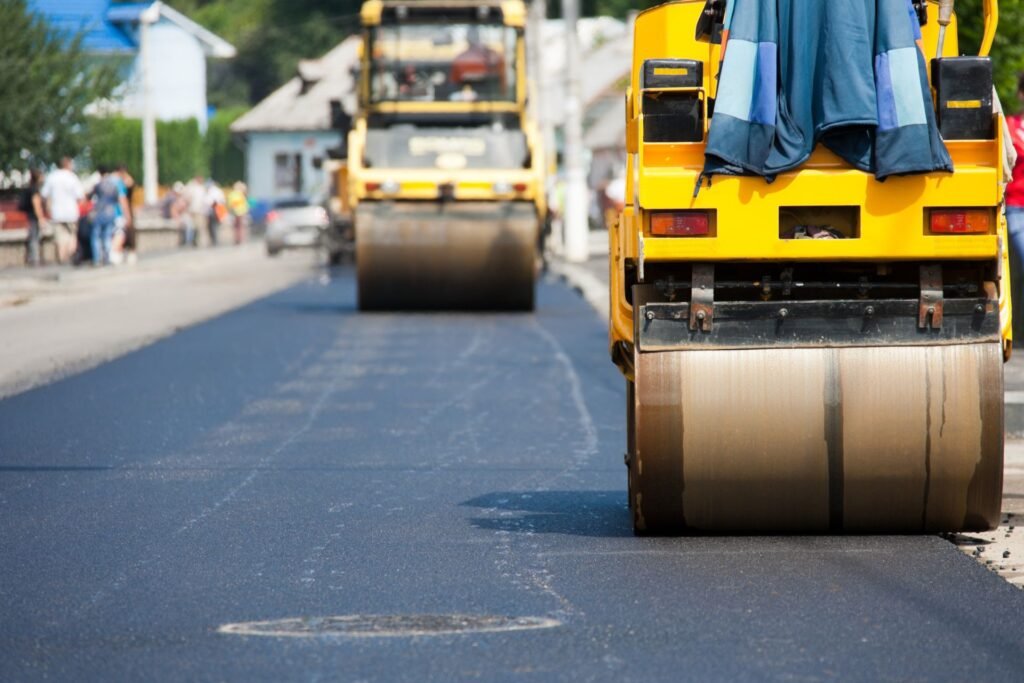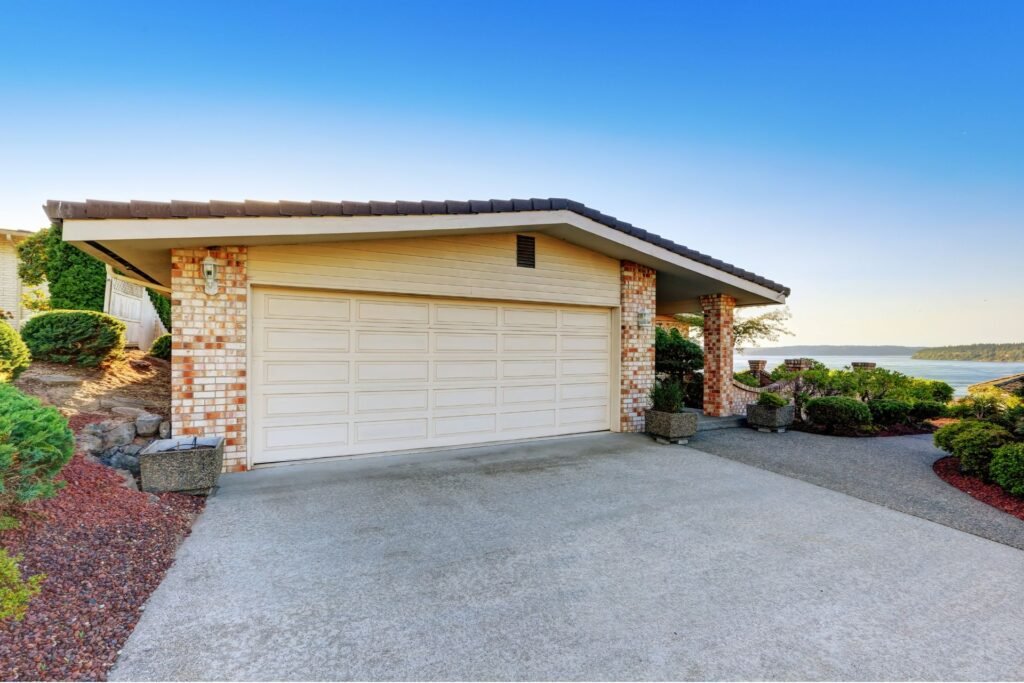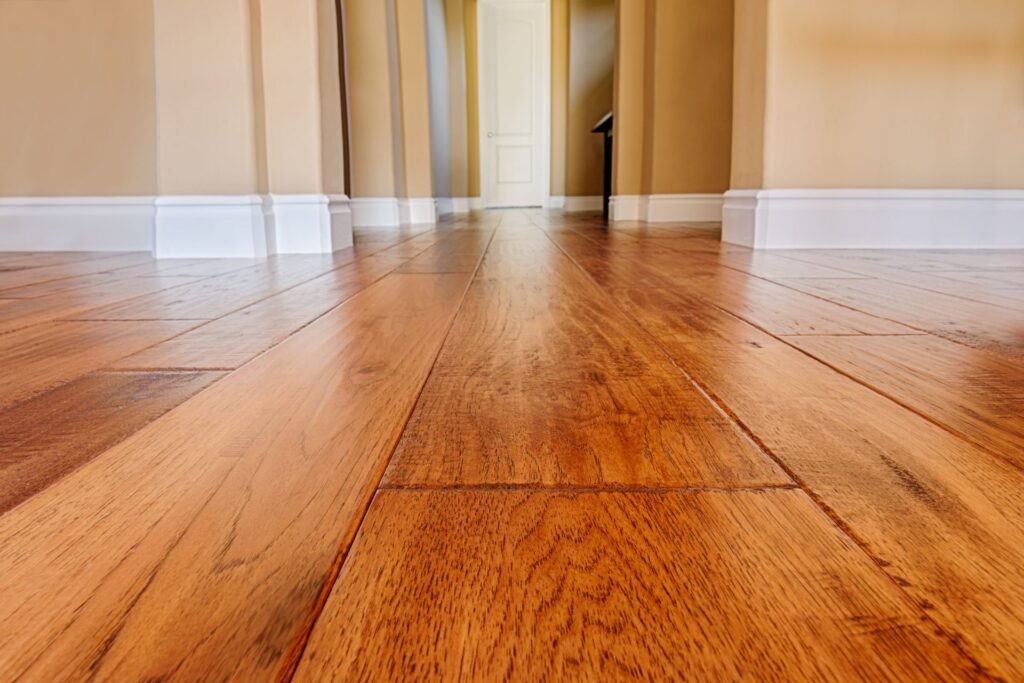Welcome to our comprehensive guide on enhancing your home’s curb appeal with various concrete driveway finishes available in New Zealand. Driveways are more than just practical pathways; they are a key component of your home’s first impression. Concrete, known for its durability and versatility, offers a multitude of finishing options that can be tailored to complement any architectural style. Whether you’re building a new home or upgrading your existing driveway, this guide will walk you through the myriad of choices, from the classic broom finish to sophisticated polished concrete, helping you make an informed decision to boost both the functionality and aesthetic appeal of your property.
A concrete driveway is a popular choice for New Zealand homeowners due to its durability and versatility. There are several finishes available to suit different aesthetic preferences and practical needs. Options include the non-slip broom finish, visually striking exposed aggregate, elegant stamped concrete that mimics high-end materials, vibrant colored concrete, and sleek polished concrete. Each type offers unique benefits, from enhancing curb appeal to fitting various architectural styles and climates. Choosing the right concrete driveway finish can significantly improve your home’s appearance and value.
Table of Contents
Why Choose Concrete For Your Driveway?
When it comes to choosing the right material for your driveway, concrete stands out as a popular and practical option. Homeowners and property developers in New Zealand are increasingly turning to concrete driveways due to their durability, aesthetic versatility, and low maintenance needs. Let’s explore why concrete might just be the best choice for your driveway.
Durability and Longevity
Concrete is renowned for its robust nature, making it an ideal choice for the diverse climates of New Zealand. Whether you’re in the sun-soaked regions of the North Island or the frosty South, concrete driveways can withstand harsh weather conditions, from intense UV rays to heavy rains and cold snaps. The strength of concrete ensures it can bear the weight of vehicles without cracking or becoming disfigured over time. This resilience contributes significantly to the longevity of concrete driveways, often lasting 30 years or more with proper care. Such durability not only makes concrete a reliable choice but also a cost-effective one in the long run, as the need for frequent repairs or replacements is greatly reduced.
Aesthetic Versatility
One of the most appealing features of concrete is its aesthetic versatility. Concrete can be finished in a variety of textures and colors to complement any home style, from modern minimalist to traditional. Techniques such as stamping or staining can be employed to mimic other materials like brick, natural stone, or even wood, providing elegance and character to your property’s exterior. Additionally, innovative concrete treatments and geometric designs can be tailored to enhance curb appeal and reflect personal style preferences. This versatility allows homeowners to create a unique and welcoming entryway to their homes.
Maintenance
Maintaining a concrete driveway is straightforward, adding to its appeal. Routine maintenance typically involves simple cleaning with a hose and periodic sweeping to keep the surface free of debris and dirt. Sealing the concrete every few years can help protect it from moisture penetration, oil stains, and other contaminants, thereby extending its life and preserving its appearance. Unlike asphalt, concrete does not require annual resurfacing, making it a more sustainable and less labor-intensive option. The initial cost of installing a concrete driveway might be higher than other materials, but the minimal upkeep required translates into significant savings over time, making it a wise investment for homeowners looking for both functionality and financial efficiency.
Opting for a concrete driveway offers numerous benefits. Its ability to withstand New Zealand’s varied climatic conditions, coupled with its potential for customization and low maintenance requirements, makes concrete a superior choice for both new and existing homes. Investing in a concrete driveway means investing in durability, style, and cost-effectiveness, ensuring your driveway enhances the aesthetic and functional value of your property for years to come. If you’re considering a new driveway, think concrete — a solid foundation that meets the practical and stylistic needs of any home.

Overview Of Concrete Driveway Finishes Available In New Zealand
When it comes to enhancing the curb appeal of your home, selecting the right driveway finish is essential. In New Zealand, homeowners have a variety of concrete driveway finishes to choose from, each offering unique benefits and aesthetic appeal. Here’s an in-depth look at some of the most popular options:
Broom Finish
A broom finish is one of the most common concrete driveway finishes in New Zealand, known for its practicality and simplicity. The process involves pulling a broom over freshly laid concrete to create a textured, non-slip surface. This finish is particularly popular for its safety features, making it ideal for areas that frequently get wet. The subtle texture provided by the broom finish also complements a wide range of architectural styles, making it a versatile choice for many homes.
Exposed Aggregate
Exposed aggregate is highly prized for its striking aesthetic and durability. This finish involves placing aggregate (a mix of stones like pebbles, quartz, and granite) into the concrete and then partially removing the top layer of cement paste to reveal the colorful and textured stones beneath. This technique not only adds visual interest and depth to the driveway but also makes it sturdy and skid-resistant. Exposed aggregate is a favorite for those looking to add a distinctive touch to their property’s exterior.
Stamped Concrete
Stamped concrete offers a customizable approach to driveway finishes. By pressing molds into wet concrete, homeowners can achieve a look that mimics more expensive materials such as stone, slate, or brick at a fraction of the cost. This method also allows for a variety of colors and patterns, enabling a high degree of personalization. Stamped concrete is particularly popular among homeowners who want to coordinate their driveway with other architectural elements of their home or garden.
Colored Concrete
Coloring concrete can transform a standard driveway into a standout feature of a property. In New Zealand, the trend includes integrating colors that blend with the natural surroundings or complement the home’s color scheme. Methods of adding color to concrete include using integral pigments, which are added during the mixing process, or applying stains and dyes on the concrete surface to achieve vibrant tones and subtle hues. This customization allows homeowners to creatively express their style.
Polished Concrete
For those who prefer a sleek, modern look, polished concrete is an excellent option. This finish involves mechanically grinding and polishing the surface of the concrete to a high shine, akin to granite or marble. Polished concrete is not only aesthetically pleasing but also durable and easy to maintain. Its reflective surface can help to brighten up outdoor areas and create a seamless indoor-outdoor flow, appealing to contemporary design sensibilities.
Each of these finishes offers unique benefits and can significantly enhance the appearance and functionality of your driveway. Whether you prefer the simplicity of a broom finish or the sophisticated look of polished concrete, there’s a driveway finish to suit every style and budget in New Zealand.

How To Choose The Right Finish For Your Home
Selecting the perfect finish for your home’s driveway is not just about aesthetics; it also involves practical considerations like matching the architectural style of your home, understanding how different finishes perform in various climates, especially in New Zealand, and considering your budget. This guide will help you make an informed decision that enhances your property’s value and curb appeal.
Consider the Architecture of Your Home
The first step in choosing the right driveway finish is to consider the architectural style of your house. The goal is to select a finish that complements and enhances your home’s design. For example, a gravel driveway might suit a rustic country house while a sleek, stamped concrete driveway could be the perfect match for modern architecture. Matching the driveway with your house style creates a harmonious look and feel that can significantly boost your home’s aesthetic appeal.
Climate Considerations
New Zealand’s diverse climate ranges from the wet, subtropical north to the colder, semi-arid regions of the south. This variability means that the choice of driveway finish must be influenced by climate considerations to ensure longevity and performance. For instance, porous materials like permeable concrete are suitable for areas with heavy rainfall as they allow water to drain through, reducing puddles and the risk of slipping. In contrast, asphalt might be preferable in colder areas as it resists cracking in freezing temperatures and can be easily repaired.
Budget
Budget is a crucial factor in deciding on a driveway finish. Each material comes with different initial costs and maintenance needs. Concrete and pavers, while more expensive upfront, offer durability and a lower maintenance cost over time, potentially providing better long-term value. On the other hand, gravel is cheaper to install but may require regular topping up and weeding. It’s important to balance your immediate financial capacity with the long-term costs associated with the upkeep of the driveway finish you choose.
Choosing the right finish for your home’s driveway involves careful consideration of style, climate, and budget. By matching the driveway finish with the architecture of your home, selecting a material suited to New Zealand’s varied climate conditions, and balancing upfront costs with ongoing maintenance, you can make a choice that not only elevates your home’s appeal but also adds to its practicality and value. Remember, the right driveway can make a significant first impression, so it pays to invest in a finish that best suits your needs and preferences.

Installation Tips And Best Practices
Installing a new driveway is a significant home improvement project that not only enhances the curb appeal of your home but also boosts its functionality. Whether you’re considering a DIY project or planning to hire professionals, understanding the critical steps and best practices can ensure a successful installation that stands the test of time. This article delves into essential tips and insights for preparing your site, deciding between professional and DIY installation, and the importance of curing and sealing your driveway.
Preparation: The Foundation of a Durable Driveway
The longevity and durability of your driveway largely depend on the quality of site preparation before any concrete is poured. Proper groundwork is crucial to prevent issues such as cracking and sinking. Here’s how you can prepare your driveway site effectively:
Survey the Site: Assess the area for any slope or drainage issues. Proper drainage is critical to prevent water accumulation that can weaken your driveway.
Remove Debris: Clear the site of any rocks, roots, and organic material. Debris can interfere with the stability of the driveway base.
Ensure Soil Stability: Compact the soil to create a solid base. This step may require professional equipment or consultation to ensure the soil is adequately compacted and ready for the next layers.
Add Base Material: Layer crushed stone or gravel as a base to improve drainage and provide a stable foundation. This layer should also be compacted thoroughly.
Professional vs. DIY: Making the Right Choice
When it comes to installing a driveway, one significant decision is whether to hire a professional contractor or take on the project yourself. Here’s how to make the best choice for your situation:
Professional Installation: For those who want a guarantee of quality and efficiency, professional installation is the way to go. Hiring experts is especially important for complex projects that require significant excavation, grading, or special decorative concrete techniques.
DIY Installation: If you have experience with home improvement projects, possess the necessary tools, and are working on a straightforward job, a DIY approach can be cost-effective. However, it’s crucial to realistically assess your skills and the project’s demands before deciding to handle it on your own.
Curing and Sealing: Ensuring Longevity
Once your driveway is installed, the work isn’t over. Curing concrete and sealing the driveway are vital steps to ensure it lasts for many years without significant maintenance issues.
Curing Concrete: This process involves maintaining adequate moisture in the concrete for a certain period, typically a week, to allow it to reach its maximum strength. Curing can be achieved through various methods such as using water-soaked fabrics, plastic sheeting, or commercially available curing compounds.
Benefits of Sealing: Sealing your driveway protects it from moisture absorption, oil spills, and other stains. It also helps to prevent the concrete from weather-related damages such as freezing and thawing cycles. Depending on the type of driveway, sealant should typically be applied every two to three years to maintain its appearance and integrity.
Taking the time to thoroughly prepare the site, choosing between a professional or DIY installation, and properly curing and sealing your concrete driveway are all crucial steps that will determine the success and longevity of your project. By following these best practices, you can ensure that your driveway remains a functional and aesthetic asset to your home for years to come.
For more information and detailed guides on specific types of driveway materials or decorative techniques, continue exploring our site or consult with a professional contractor who can provide personalized advice tailored to your specific needs.

Maintenance And Care For Concrete Driveways
Maintaining a concrete driveway is crucial not only for preserving its appearance but also for extending its lifespan. In this guide, we’ll explore effective strategies for regular cleaning, provide practical repair tips for common issues, and explain how proper maintenance can significantly boost the longevity of your driveway.
Regular Cleaning: Maintaining Cleanliness to Prevent Damage
Concrete driveways require routine cleaning to maintain their aesthetic appeal and structural integrity. Dirt, oil, and other substances can accumulate over time, leading to stains and potential damage. Here are step-by-step guidelines to keep your concrete driveway in pristine condition:
Sweep Regularly: Use a stiff broom to sweep away leaves, dirt, and debris at least once a week. This prevents buildup and staining.
Routine Washing: Hose down your driveway bi-weekly with water to remove loose dirt. For deeper cleaning, use a pressure washer every few months to remove stubborn stains and buildup.
Stain Removal: Treat oil stains and other spills promptly with absorbent materials like cat litter or sawdust. After a day, sweep up the material and clean the area with a degreaser or detergent designed for concrete.
Sealing: Apply a high-quality concrete sealer every two to three years to protect the surface from moisture penetration, chemicals, and wear. This also enhances the appearance of the concrete by adding a subtle sheen that repels water and oil.
Repair Tips: Addressing Common Issues
Concrete driveways are prone to certain issues such as cracking, discoloration, and surface scaling. Addressing these problems promptly can prevent further deterioration:
Crack Repair: Small cracks can be filled with a flexible concrete crack filler or sealant. For larger cracks, remove debris from the crack using a chisel and hammer, and then fill with a concrete patching compound.
Discoloration: To address discoloration, clean the driveway thoroughly with a mild detergent and a stiff brush. For persistent stains, consider a concrete resurfacing treatment or apply a concrete stain or dye to even out the coloration.
Surface Scaling: Remove loose or flaking concrete with a pressure washer or a stiff brush. Repair the area with a concrete overlay or patching product designed for outdoor use.
Longevity: Extending the Life of Your Driveway
The key to extending the life of your concrete driveway lies in regular maintenance and timely repairs. By following the tips outlined above, you can protect your investment and keep your driveway looking and performing well for many years. Here’s how proper maintenance impacts longevity:
Prevents Structural Damage: Regular cleaning and sealing prevent water and chemicals from penetrating the surface, which can cause erosion and other structural issues.
Enhances Visual Appeal: A well-maintained driveway enhances curb appeal, adding value to your home.
Saves Money: By addressing minor issues promptly, you avoid the need for more extensive, costly repairs in the future.
In conclusion, taking proactive steps to maintain and care for your concrete driveway is essential. Regular cleaning, immediate repairs, and protective measures like sealing can greatly enhance the longevity and appearance of your driveway. By adhering to these maintenance practices, you ensure that your driveway remains functional and attractive for years to come.

Case Studies: Successful Concrete Driveway Projects In New Zealand
When it comes to enhancing curb appeal and functionality, a well-executed concrete driveway plays a pivotal role. Across New Zealand, from urban centers to serene coastal retreats, homeowners are choosing concrete for its durability and versatility. This article delves into three case studies that exemplify successful concrete driveway projects, each tailored to its unique environment: an urban home, a country villa, and a coastal retreat.
Urban Home: Broom Finish Concrete Driveway in a Bustling City Environment
In the heart of a bustling city, space and functionality are paramount. For an urban home, a broom-finish concrete driveway serves as an excellent choice due to its practical benefits. This type of finish provides a non-slip surface, crucial for the wet weather conditions frequently experienced in many New Zealand cities. The slightly rough texture is achieved by brushing a broom over freshly poured concrete, which not only ensures safety but also complements the modern urban aesthetic.
Key Benefits:
Durability: Capable of withstanding heavy city traffic and the wear and tear from constant use.
Low Maintenance: Requires minimal upkeep beyond occasional cleaning and sealing to maintain its integrity and appearance.
Cost-Effective: Offers a balance between affordability and longevity, making it a smart investment for homeowners.
Country Villa: Stamped Concrete Enhances a Rural Property
Moving to the countryside, where aesthetics often play as significant a role as functionality, stamped concrete driveways are a popular choice. For a country villa nestled in rural New Zealand, a stamped concrete driveway can mimic the textures and colors of natural stone or brick, adding a touch of elegance without the cost of premium materials.
Key Features:
Versatile Designs: Available in various patterns and colors to complement the natural surroundings and the architectural style of the home.
Durability and Strength: Like all concrete surfaces, stamped concrete stands up well to varying weather conditions and heavy usage.
Enhanced Property Value: The aesthetic appeal of a stamped concrete driveway can significantly increase the property’s market value.
Coastal Retreat: The Benefits of Polished Concrete in a Seaside Setting
For homes by the sea, where the environment can be harsh and materials are prone to corrosion, polished concrete driveways offer a resilient and stylish solution. At a coastal retreat, polished concrete withstands the salty air and moisture, which might degrade other materials. Its reflective surface enhances natural light, a significant advantage in often overcast seaside climates.
Advantages:
Weather Resistance: Highly resistant to salt corrosion and moisture, polished concrete is ideal for coastal conditions.
Aesthetic Appeal: Provides a sleek, modern look that enhances the minimalist architecture often favored in seaside homes.
Low Maintenance: Easy to clean and resistant to staining from salty air and debris.
Concrete driveways are a testament to versatility, durability, and aesthetic flexibility, making them a top choice for diverse New Zealand settings—from the urban expanse to the tranquil countryside and vibrant coastlines. Each of the projects discussed here demonstrates how concrete, with its various finishes, meet different lifestyle and environmental needs while boosting property value and appeal. Whether it’s the practicality of a broom finish, the beauty of stamped patterns, or the sleekness of polished surfaces, concrete driveways stand as a premier choice for homeowners looking to enhance their property’s functionality and style.
This detailed examination of concrete driveways in New Zealand showcases how homeowners can achieve both practicality and curb appeal, proving that the right driveway is not just about the path to your home but a critical component of home design.

FAQs: About Concrete Driveway Finishes In NZ
What are the most popular concrete driveway finishes in New Zealand?
The most popular finishes include broom finish, exposed aggregate, stamped concrete, colored concrete, and polished concrete. Each offers unique aesthetic and functional benefits, such as non-slip surfaces or decorative patterns.
How long does a concrete driveway last?
A properly installed and maintained concrete driveway can last 25 to 30 years or more. The longevity can vary based on the quality of materials, installation, and local climate conditions.
What is the most cost-effective concrete driveway finish?
The broom finish is generally the most cost-effective option. It requires less labor and materials compared to more decorative finishes like stamped or colored concrete.
Can I install a concrete driveway myself?
While it is possible for a DIY enthusiast to install a basic concrete driveway, professional installation is recommended for most finishes to ensure durability and correct handling of materials.
How do I maintain my concrete driveway?
Maintenance generally involves routine cleaning, sealing the concrete every few years, and promptly repairing any cracks or damage. Regular maintenance can significantly extend the life of your driveway.
What is the best driveway finish for New Zealand’s variable climates?
Exposed aggregate is particularly suitable for New Zealand’s diverse climates as it offers excellent durability and a non-slip surface that is ideal for wet conditions.
How much does it cost to install a concrete driveway in New Zealand?
The cost can vary widely depending on the size of the driveway, the finish selected, and regional price differences. On average, prices might range from NZ$100 to NZ$150 per square meter for basic finishes.
Are there environmentally friendly options for concrete driveways?
Yes, using recycled materials in the aggregate mix and choosing locally sourced materials can reduce the environmental impact of a concrete driveway. Sealing products with lower volatile organic compounds (VOCs) can also be used.
What should I consider when choosing a finish for my driveway?
Consider the architectural style of your home, the driveway’s exposure to weather, your budget, and the desired maintenance level. Each finish offers different aesthetics and performance characteristics.
Can I change the color of my concrete driveway later on?
While it’s difficult to change the color once the concrete is cured, surface treatments and stains can be applied to alter the color of an existing concrete driveway. However, these methods will require professional application and periodic maintenance.
Conclusion
When it comes to selecting a driveway finish, concrete stands out due to its durability, aesthetic versatility, and cost-effectiveness. Not only does a concrete driveway last up to 30 years with minimal maintenance, but it also offers a range of customizable options from smooth finishes to stamped patterns, enhancing both functionality and curb appeal. Additionally, concrete is cost-effective in the long run and can be environmentally friendly, reflecting light to reduce lighting needs and supporting water management with permeable options. It’s crucial to consider local conditions, such as climate and available resources, and consult with local professionals who can offer personalized advice and show samples tailored to your specific needs. By evaluating these factors, homeowners can make a well-informed decision that enhances both the value and functionality of their property.

